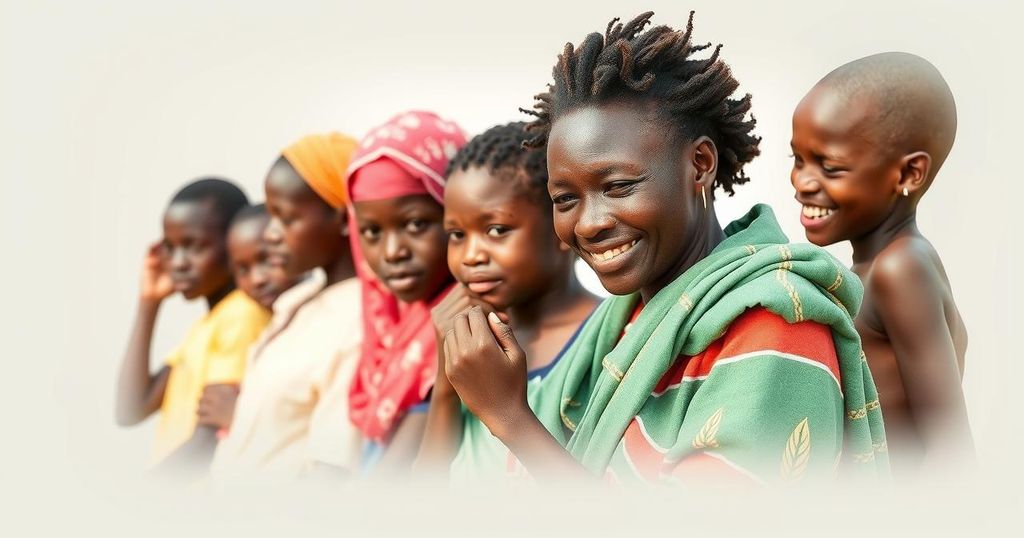South Sudan remains in a humanitarian crisis exacerbated by unrest, food insecurity, and climate-induced disasters, affecting access to essential services and increasing the vulnerability of its population. The influx of refugees from Sudan and ongoing health crises, including cholera and malaria, further strain resources and heighten protection risks, particularly for women and children. Urgent intervention and support are essential to address these complex challenges effectively.
South Sudan continues to grapple with a profound humanitarian crisis over a decade after attaining independence and following six years post the revitalized peace agreement. Factors such as sporadic armed conflicts, food insecurity, climate-related challenges, and public health issues undermine access to essential services including water, sanitation, health, and education. The economic downturn, exacerbated by the conflict in neighboring Sudan and severe flooding, further compounds the myriad needs of the population, particularly affecting women and girls who face heightened protection risks.
The nation stands as the world’s second most vulnerable country to natural disasters, according to the 2024 INFORM Risk Index. Climate variability has led to extreme events, including floods that have inundated communities already suffering from previous crises, impacting around 1.4 million individuals. Thousands struggle with disrupted livelihoods due to consecutive years of flooding, rendering basic services and resources scarce. Additionally, nearly 36 percent of the population is affected by various drought conditions, forecasting increased humanitarian needs moving into 2025.
Conflict remains a pivotal contributor to the humanitarian emergency in South Sudan, with sporadic violence stemming from armed youth and intercommunal disputes becoming prevalent. Although the documented violence attributed to formal conflict actors has decreased, localized violence, often over resources such as land and water, poses significant challenges. The United Nations Mission in South Sudan reported a 43 percent increase in intercommunal violence during the second quarter of 2024, highlighting the precarious security situation that impedes humanitarian efforts.
The ongoing crisis in Sudan has led to an influx of over 901,000 refugees into South Sudan since April 2023, exacerbating the existing humanitarian challenges. These individuals, many of whom are women and children, face severe security threats en route and upon arrival. The limited infrastructure in border regions is overwhelmed, necessitating urgent life-saving support measures including health, shelter, and nutrition aid to assist the growing population of returnees and internally displaced persons.
Public health concerns in South Sudan remain dire due to a confluence of factors, including poor immunization coverage, ongoing disease outbreaks, and humanitarian dependency. Cholera and malaria continue to plague communities, with malaria accounting for significant morbidity rates. The fragile health system, underscored by inadequate funding, calls for enhanced operational capacities to address emerging health crises while ensuring accessible services to the population.
Ultimately, addressing the complex humanitarian landscape in South Sudan requires a multi-faceted approach that entails bolstering infrastructure, enhancing health systems, and fostering community resilience. Expanding humanitarian assistance and addressing underlying issues, such as land ownership and livelihood programs, is essential to aid those impacted by both ongoing conflicts and climate-related degradation.
The humanitarian situation in South Sudan remains critical due to a culmination of armed conflicts, food insecurity, and climate variability, which poses serious threats to population livelihoods and access to basic services. With the nation confronting both local and international crises, urgent intervention is vital to alleviate the suffering of millions of citizens. Climate change effects, ongoing conflicts, and civic unrest have led to mass displacement and a deteriorated public health system, revealing systemic weaknesses and compounding existing vulnerabilities.
In conclusion, South Sudan is facing a multifaceted humanitarian crisis characterized by climate change impacts, ongoing conflict, and public health emergencies. Urgent measures are necessary to address food insecurity, health service gaps, and infrastructure limitations while enhancing community resilience. Without significant support and intervention, millions of individuals will continue to suffer acutely in this fragile context, amplifying the need for comprehensive strategies to restore stability and well-being in the region.
Original Source: www.unocha.org






